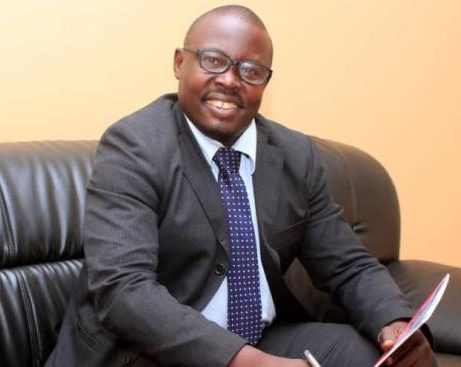By Isaac Christopher Lubogo
- Introduction: When Numbers Lie but Truth Speaks
In the United States, it is said that about 35–38% of adults possess a university degree. In Uganda, the figure barely crosses 5%. Yet numbers, like shadows, only reveal what the sun allows them to. For beneath these statistics lies a deeper narrative — one about the mind of a nation, the philosophy of knowledge, and the spiritual infrastructure of development.
A nation’s literacy cannot be measured merely by how many can read a sentence, but by how many can read reality, interpret it, and reconstruct it for the good of society. In that sense, literacy is not about letters — it is about liberation. It is not about schooling — it is about awakening.
- The Anatomy of Literacy: From Reading to Reasoning
The United States represents a society that evolved literacy into intellectual functionality. Their citizens are taught not merely to know, but to think. The educational system is designed not to produce clerks, but creators; not to generate graduates, but innovators.
Uganda, by contrast, remains largely trapped in what Paulo Freire called the banking model of education — where students are treated as empty vessels to be filled, not minds to be ignited. The result is a population that reads but does not reason, graduates who memorize but do not analyze, and policymakers who legislate without intellectual conscience.
A literate mind that cannot question power, rethink systems, or reconstruct paradigms is a silent accomplice to its own oppression.
III. Degrees, Development, and the Invisible Currency of Ideas
When 38% of Americans hold degrees, it is not the parchment that gives them power; it is the ecosystem that values thought. Universities there are laboratories of national imagination — places where ideas are refined into technology, art, governance, and enterprise.
In Uganda, degrees often serve as social ornaments rather than instruments of transformation. The tragedy of our education is that it teaches compliance before competence, obedience before originality. We celebrate certificates, not solutions; positions, not purpose.
That is why, despite a commendable literacy rate, the economic yield remains minimal. The mind has been trained to seek employment, not empowerment — to serve systems, not to shape them.
- The Socioeconomic Correlation: The Mind as a Factor of Production
The United States has industrialized its intelligence. Uganda has spiritualized its poverty.
Where the U.S. worker produces nearly $180,000 worth of output per year, the Ugandan worker contributes less than $3,000. The gap is not in muscle — it is in mind. The real divide between the North and the South is not geographic but cognitive.
Human capital — the ability to imagine, innovate, and implement — is the most valuable national resource. Oil may run dry, minerals may deplete, but ideas renew themselves endlessly in the furnace of an educated mind.
Hence, the literacy that transforms nations is not the one that teaches how to read but why to read. Not the one that teaches what to think, but how to think.
- Uganda’s Dilemma: Literacy Without Liberation
Uganda’s education system has produced a population that can fill forms but cannot fill gaps. We are literate enough to read a constitution, yet too timid to interpret it in the light of justice. We are qualified enough to work in offices, yet too docile to challenge inefficiency and corruption.
Our universities have become degree factories instead of idea foundries. The result is an intellectual drought in a land rich with youthful rain.
The real literacy crisis, therefore, is not in the rural illiterate who cannot read a book, but in the urban graduate who cannot read society.
- The Philosophy of Human Capital: Beyond the Classroom
Education, in its truest form, is the nation’s conscience. It is both a mirror and a map — showing a people who they are and where they can go. When education ceases to question, society ceases to progress.
America’s dominance in science, technology, and governance is not accidental. It is the inevitable harvest of an intellectual culture that rewards curiosity. Meanwhile, Uganda’s underdevelopment is not due to lack of potential, but due to the absence of philosophical infrastructure — the habit of thinking critically and systemically about life, governance, and destiny.
VII. Towards a Literacy of Liberation
Uganda’s future lies not in increasing literacy rates alone, but in transforming literacy into leadership. We must reimagine education as a national ideology — a moral project of rehumanization and awakening.
That means:
- Teaching critical thinking from primary level upward.
- Bridging theory and production — every degree must solve a societal problem.
- Embedding civic ethics into the curriculum to cultivate accountable citizens.
- Decolonizing knowledge — integrating indigenous wisdom with global science.
- Valuing artisanship and innovation as equally patriotic as academia.
VIII. Conclusion: The Mind as the True Measure of a Nation
The difference between Uganda and the United States is not race, resources, or religion — it is the philosophy of the mind.
A nation that builds schools but kills curiosity will forever graduate servants, not statesmen. But a nation that ignites the mind, even with limited resources, will eventually command its destiny.
As I have often said:
> “The literacy of a people is not the ability to read words, but the courage to read the world — and to rewrite it in the ink of justice, creativity, and truth.”
Until Uganda learns that lesson, her degrees will decorate walls but not transform lives.
# Suigeneris


